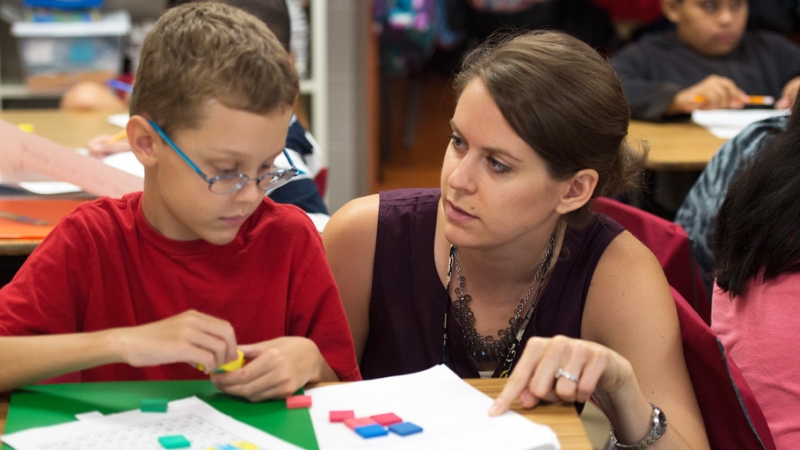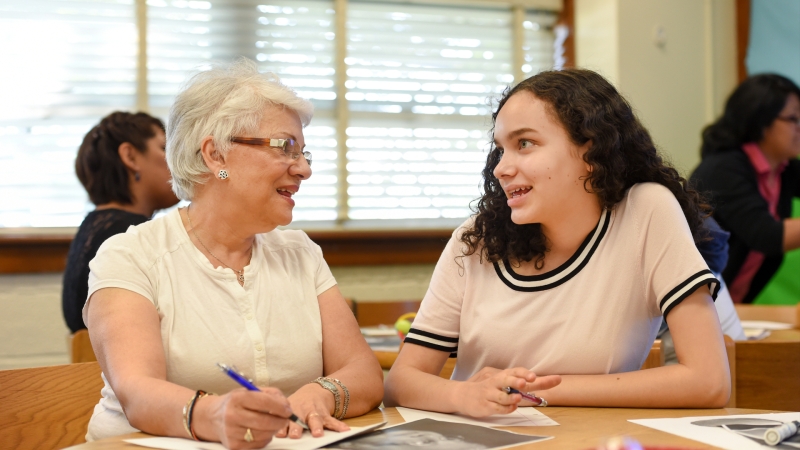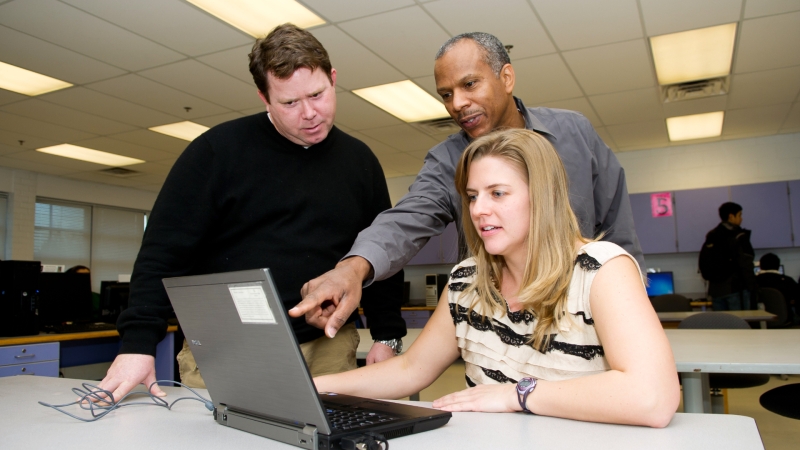
Learner - Instructional Coaching
Instructional coaches serve in the role of a learner who model continual improvement, reflect on their work by seeking and graciously receiving feedback, experiment with new ideas, and use what they learn to help all teachers and students achieve.
By modeling their own learning, coaches send a powerful message about the importance of ongoing professional learning for increasing student achievement.
- Joellen Killion and Cindy Harrison; Taking the Lead
The Role of a Learner:
One of the most important roles a coach can assume is that of a learner. Learners model continual improvement, reflect on their work by seeking and graciously receiving feedback, experimenting with new ideas, and use what they learn to help all teachers and students achieve.
- Joellen Killion and Cindy Harrison; Taking the Lead
Here are some ways that FCPS Instructional Coaches serve in this role:
- Providing coaches with high quality, monthly professional development opportunities to stay current with curriculum and educational research.
- Participating in side-by-side learning with teachers and administrators.
Coaches in FCPS take advantage of their own learning in many ways. As a community, instructional coaches have studied the works of:
- Jim Knight
- Lucy West
- Joellen Killion and Cindy Harrison
- Robert Garmston and Diane Zimmerman
Individual coaches in the FCPS coaching community differentiate their own learning by participating in learning circles. Some of these topics have included:
- John Hattie’s Visible Thinking
- Exploring and Implementing Jim Knight’s Impact Cycle through video coaching
- Math Workshop
- Effective Facilitation Skills
- Project Zero’s Cultures of Thinking
Coaches also take advantage of professional development opportunities offered through the school system to stay current on division initiatives and instructional practices. These have included:
- Adaptive Schools
- Cognitive Coaching
- Fierce Conversations

School Leader
Instructional coaches serve in the role of a school leader when they share the school vision, align their professional goals with school and district goals, and share responsibility for the school’s overall success.

Classroom Supporter
Instructional coaches serve in the role of a classroom supporter when they work inside classrooms to help teachers implement new ideas through demonstration, co-teaching, or observation and feedback.

Instructional Specialist
Instructional coaches serve in the role of an instructional specialist when they work with teachers to plan for high-yield instructional strategies to use in the classroom with students.

Curriculum Specialist
Instructional coaches serve in the role of a curriculum specialist when they collaborate with teachers to develop an understanding around their curriculum in order to provide the best instruction to their students.

Catalyst for Change
Instructional coaches serve in the role of a catalyst for change when they question the status quo, always seeking to provide the best educational experience for students.

Learning Facilitator
Instructional coaches serve in the role of learning facilitators when they train teachers in new instructional strategies, facilitate whole school professional development opportunities, and support the work of collaborative learning teams.

Data Coach
Instructional coaches serve in the role of a data coach when they analyze data to make informed instructional decisions to meet the needs of all learners.

Staff Mentor
Instructional coaches serve in the role of a mentor as they continue to build trusting relationships with the staff in a school to develop partnerships with all stakeholders.

Resource Provider
Instructional coaches serve in the role of a resource provider when they support teachers in developing the knowledge of available resources, such as curriculum and instructional resources.